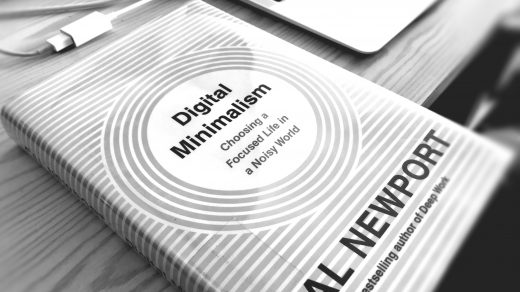I remember being in high school and listening to my teachers complain about how we, the students, relied on Wikipedia to write their essays too much, and how information online couldn’t be trusted. I was always confused by this statement, as many of my schoolbooks were often outdated in their information (like my Economics book being from 2004, when I studied the subject in 2018), or just simply didn’t include the information that we had to discuss because the syllabus had changed before our school had the chance to update our books. I know that some caution is required when it comes to consuming information online; however, ever since I was in high school, I have pondered what the true difference between the information I received in school and the information I came across online was, if both were educational. Could it be that by making educational material easily accessible on the internet, more people could get access to formal education online for free?
With the past two years of education during Corona times, I understand that online education is probably not most people’s favourite topic. However, this is not exactly what I am interested in discussing (or, at least, I don’t want to write a long critique on every online class I’ve taken in the last four semesters). Rather, I would like to think about how the Internet might be used for democratizing access to education.
One example I would like to look at is YouTube. While it can be burdensome to go through all the videos under the same keywords, if you really want to learn something, you can usually do it on YouTube. Sure, you won’t become a surgeon from a doctor with a YouTube channel, but you can definitely learn how to code, crochet, or cook. One of my personal favourite channels is CrashCourse, which covers many subjects on a high school level (such as History, Film, Biology, and many others). What I find especially important about projects such as CrashCourse is how they give the opportunity to many people to learn in a fun way. Their content is simplified enough where teenagers or non-native speakers of English can understand it, and the information is presented in an engaging way. It follows a definite lesson structure, creating a course of videos which can be watched both as a series or individually if you only need a refresher on a certain topic. I believe that content such as is provided by this channel serves a great purpose in educating people for whom education might not be as freely available as for others. A simple example of this is someone having to miss class because they are sick; knowing the topic of the class lets you look up tens or even hundreds of videos online that explain the topic. Another example of how the Internet is democratizing education comes from a friend of mine who is a second-generation immigrant. She has told me stories of her mother learning English and watching educational videos on medicine online just for fun, to learn. The internet allowed her mom to not only learn a new language, but also explore her interests in topics that otherwise would not be easily available for her to learn about. This made me think of how, just a few decades ago, something like this would not even be imaginable – sure, you could always go to the library to check out a book on a certain topic that you wanted to learn about. However, this relied on your library’s available books, and it was always questionable how old or relevant the information in the book was. Today, information and knowledge has been made much more accessible to us than ever before – the internet has democratized learning for us all. It is easier to check sources and references for content posted online – however, discretion is still necessary. Nevertheless, this has made me think – is there a reason why we don’t acknowledge this possibility of the Internet more?
I’ve heard stories from many people of how they learned most of their skills necessary for their office jobs from online tutorials (for coding, Microsoft Office, etc) and just lied on their resume that they took a course on it with an instructor, in order for their skills to seem more legit. But learning online, especially from content on sites like YouTube, is a real way to learn skills and catch up on subjects you might have slept through in your high school class, or just never had the chance to learn at all. The access that the internet provides us with to information might be a road that has to be tread cautiously; however, when used carefully, the Internet might just be what allows for more people access to general education that otherwise might not be open for them.



Recent Comments